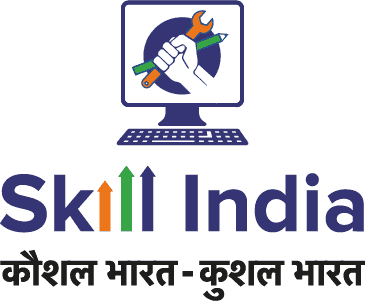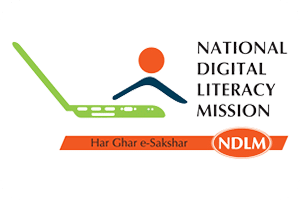
Chief Minister`s Kaushalya Karnataka Yojane (CMKKY)
RCSS (Rastriya Computer Saksharatha Samithi) has been actively involved in implementing schemes like the Chief Minister`s Kaushalya Karnataka Yojane (CMKKY). In addition, RCSS has established centers that further contribute to the goals of these schemes. RCSS centers play a significant role in extending the reach and impact of RCSS`s initiatives, in CMKKY scheme. These centers operate under the guidance and support of RCSS, following its established framework and standards. By establishing franchisee centers, RCSS aims to decentralize its operations and provide computer and technical education across various regions.
RCSS centers serve as local training hubs, enabling the delivery of skill training programs to individuals in rural areas. These centers adhere to the approved curriculum and guidelines set by RCSS, ensuring the quality and standardization of education and training. They offer a range of short-term and long-term certificate and diploma courses, as well as post-graduate diploma courses in computer hardware and software.
RCSS centers operate under the brand and reputation of RCSS, leveraging its expertise and recognition in the field of computer education and vocational training. These centers are strategically established in various locations across Karnataka, focusing on providing computer literacy, vocational education, and skill development to empower individuals, particularly those from economically disadvantaged backgrounds.
Through RCSS centers, the benefits of the CMKKY scheme and other RCSS initiatives are extended to a wider audience. This decentralized approach allows for localized training, addressing the specific needs and challenges of different regions while aligning with the overall objectives of RCSS and the schemes it supports.
Overall, RCSS centers serve as vital components of RCSS`s efforts to provide computer and technical education, vocational training, and skill development to rural areas. They contribute to the vision of empowering individuals, creating self-employment opportunities, and bridging the digital divide for a more inclusive society.

Pradhan Mantri Kaushal Vikas Yojana (PMKVY)
RCSS (Rastriya Computer Saksharatha Samithi) is also a part of another scheme called the Pradhan Mantri Kaushal Vikas Yojana (PMKVY). PMKVY is a flagship skill development program initiated by the Government of India with the goal of providing industry-relevant skills to the youth of the country.
By becoming a PMKVY training provider, RCSS would have the opportunity to offer skill training in various sectors and job roles approved under the scheme. This would enable RCSS to contribute to the skill development and employability of the youth, especially in rural areas.
Overall, RCSS expanded its efforts by participating in the PMKVY scheme, thereby providing additional opportunities for skill development and employment to the youth through its established network and expertise in computer and technical education.

RCSS (Rastriya Computer Saksharatha Samithi) can actively contribute to the Skill India program, which is a nationwide initiative by the Government of India aimed at enhancing the skills and employability of the Indian workforce. Here`s how RCSS can participate in the Skill India program:
1. Skill Development Centers: RCSS can establish dedicated Skill Development Centers to offer training programs aligned with the Skill India program. These centers can provide skill training in various sectors, such as computer literacy, vocational skills, and technical education.
2. Partnership with Sector Skill Councils (SSCs): RCSS can collaborate with relevant Sector Skill Councils associated with the Skill India program. Sector Skill Councils focus on specific industries and are responsible for designing and standardizing skill training programs. By partnering with SSCs, RCSS can ensure that its training programs meet industry standards and cater to the specific needs of different sectors.
3. Recognition as a Training Provider: RCSS can seek recognition as a Training Provider under the Skill India program. This recognition involves meeting certain criteria set by the program, such as infrastructure requirements, qualified trainers, and adherence to quality standards. Being a recognized Training Provider allows RCSS to access funding and support provided by the program.
4. Industry Collaboration: RCSS can establish partnerships and collaborations with industries and employers to understand their skill requirements and offer customized training programs. By aligning training programs with industry needs, RCSS can enhance the employability of its trainees and create better job opportunities.
5. Training of Trainers (ToT): RCSS can participate in the Skill India program`s Training of Trainers initiatives. By equipping trainers with the necessary skills and knowledge, RCSS can enhance the quality of its training programs and ensure effective delivery.
6. Mobilization and Awareness: RCSS can actively engage in mobilizing and creating awareness about the Skill India program. This involves reaching out to potential beneficiaries, particularly in rural areas, and promoting the importance of skill development and the opportunities available through the program.
By actively participating in the Skill India program, RCSS can contribute to the national goal of skilling and upskilling the Indian workforce. The organization can play a crucial role in imparting industry-relevant skills, enhancing employability, and driving economic growth in the country.

NDLM
RCSS took part in the National Digital Literacy Mission (NDLM), a Government of India initiative aimed at making one person in every household digitally literate. RCSS set up designated training centers with the necessary infrastructure and resources to provide digital literacy training under the NDLM, thereby facilitating the learning process.



